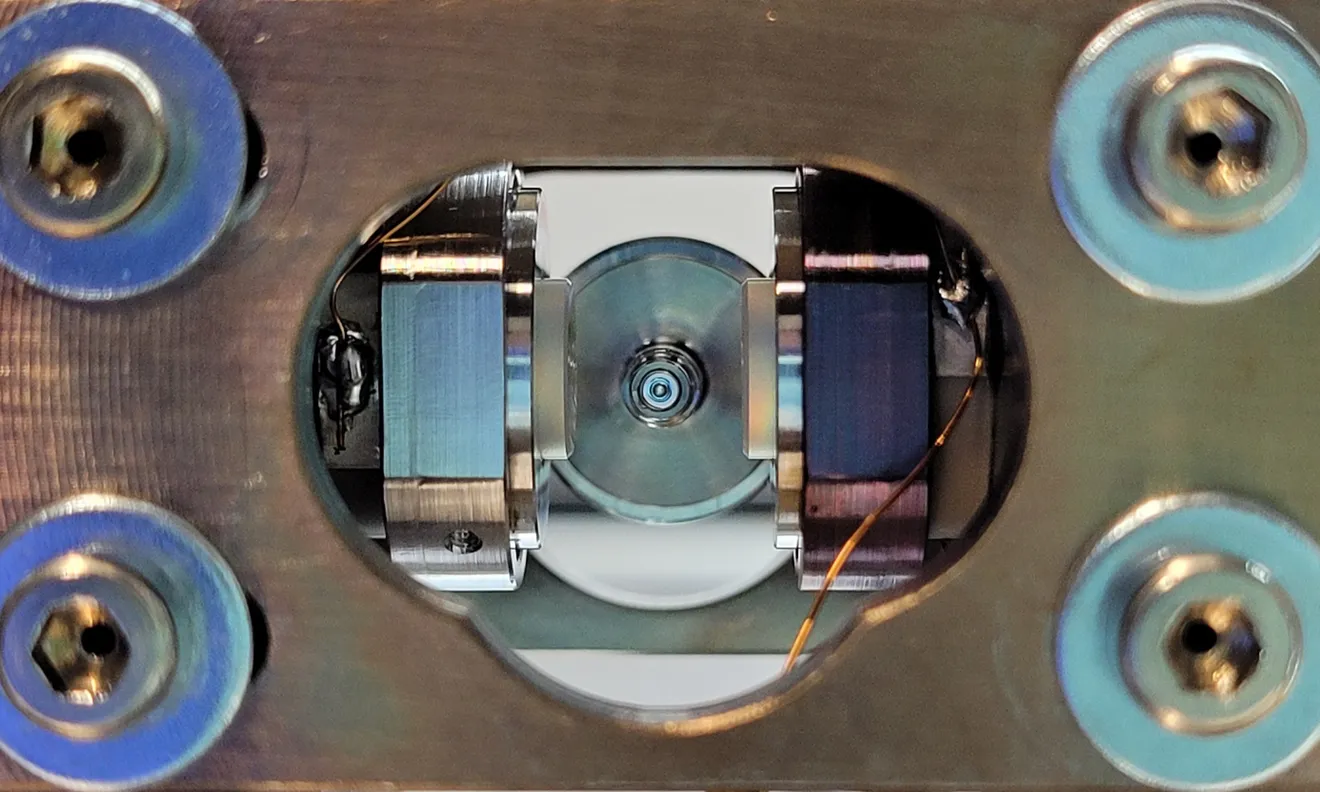Scientists at ETH Zurich and TII Abu Dhabi, with the help of quantum optics theorists from Innsbruck, Austria, have been able to concurrently cool tiny glass spheres’ motion in two dimensions to the quantum ground state. This defines an important step toward a 3D ground-state cooling of a massive object and paves the way for novel opportunities in the design of ultra-sensitive sensors.

Sideview of the setup with the lens in the middle and the mirrors left and right. Image Credits: University of Innsbruck
Glass nanoparticles captured by lasers in extreme vacuums are regarded as a likely platform for discovering the quantum world’s limits. The question as to at which size an object is defined by the laws of quantum physics instead of the rules of classical physics has not yet been answered.
A team formed by Lukas Novotny (Zurich), Markus Aspelmeyer (Vienna), Oriol Romero-Isart (Innsbruck), and Romain Quidant (Zurich) is trying to answer this question accurately within the ERC-Synergy project Q-Xtreme. An important step on the way to this objective is to decrease the energy stored in the motion of the nanoparticle to a feasible extent, which means cooling the particle down to the quantum ground state.
Control Over All Dimensions of Movement
The Q-Xtreme team has been working jointly on nanoparticles’ ground-state cooling for a long period. Many experiments in Vienna and Zurich, aided by theoretical calculations by Carlos Gonzalez-Ballestero and Oriol Romero-Isart, have resulted in the first demonstrations of the ground-state cooling of a nanoparticle, both by positioning the particle between two mirrors (cavity-based cooling) and by dampening the particle motion with electronic control (active feedback).
Until now, the ground state has been attained in experiments only along one of the three directions of particle motion, leaving the motion along the other two directions “hot.”
Achieving ground-state cooling along more than one direction is key for exploring novel quantum physics. But so far this achievement remained elusive as it was challenging to make the mirrors between which the particle is positioned interact efficiently with the motion along some of the three directions.
Gonzalez-Ballestero, Department of Theoretical Physics, University of Innsbruck
Cooling to the full ground state was prevented by the “Dark Mode Effect.”
Different Frequencies Towards the Goal
For the first time, the study at the Photonics Laboratory of ETH Zurich is now successful in ground-state cooling of a nanoparticle along two directions of motion. With a thousand times smaller size than a grain of sand, a glass sphere is fully isolated from its environment in a high vacuum and held by an intensely focused laser beam while at the same time being cooled to near absolute zero.
Relying on theoretical forecasts from the Innsbruck team, the Swiss physicists could circumvent the dark-state problem.
To do so, we designed the frequencies at which the particle oscillates in the two directions differently and carefully adjusted the polarization of the laser light.
Lukas Novotny, ETH Zurich
The study was reported in the journal Nature Physics. It establishes that the utmost energy state for the three motion directions can be attained. It also enables making fragile quantum states in two directions, which can be employed to develop ultrasensitive gyroscopes and sensors.
The research was funded by the European Research Council ERC and the European Union, among others.
Journal Reference
Piotrowski. J., et al. (2023) Simultaneous ground-state cooling of two mechanical modes of a levitated nanoparticle. Nature Physics. doi.org/10.1038/s41567-023-01956-1.